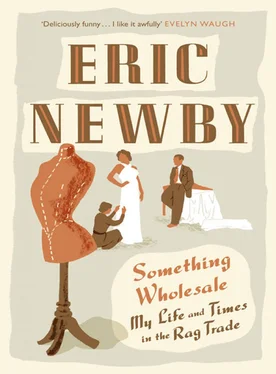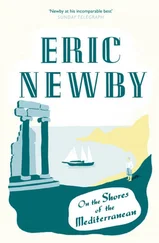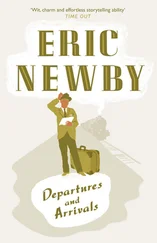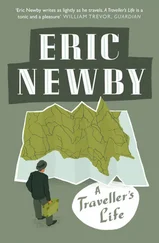Our clothes matched our craft. My father wore white flannel trousers with a narrow black stripe, turned up to show his black-and-pink club socks. He wore white buckskin shoes and he had a magnificent blazer of cream flannel with five buttons up the front. None of the clothes made by his tailor ever wore out. They belonged to a period before the First World War when a button once put on was on for ever. My mother always contrived to be extremely elegantly turned out and at the same time workmanlike as she needed to be.
Normally the least sensitive of men to what others wore, my father was extremely put out if anyone turned up for an afternoon on the water in what he described as ‘the wrong sort of clobber’. There was an occasion when a detective from Scotland Yard was invited to accompany us. My father had an extraordinarily wide acquaintance and I think he hoped that the presence of a real live detective would please me. For days before I was consumed with excitement, but when he finally appeared, in scorching weather, the detective wore a black suit, black boots and, when he took off his jacket and waistcoat, displayed a thick flannel shirt and rather grubby braces. He lent an air of gloom to an otherwise happy outing. From that time onwards my father always referred to him in the past tense as ‘that fellow who wore braces’.
At Messum’s boathouse, when we finally arrived at Richmond, there was always a tremendous palaver about putting the skiff in the water. An experienced boatman would be in charge of the operation and apprentices were routed out of the dark recesses of the building to help with the launching. The wicker baskets were stowed away; there was a great business of putting on and taking off sweaters; at the last moment the leathers of the sculls would have to be greased. Finally we were away, my mother steering, I in the bows trailing my hand in the water and being told to ‘sit her up’ by my father, who was sculling strongly, ‘to get her up a bit’ as he put it. He was shoving her through the green water – for at that time Thames water was not the barely diluted sewage it is today – past Glover’s Island, that beautiful little island with the noble trees growing on it that makes the view from Richmond Hill; Eel Pie Island; Pope’s Villa at Twickenham, and Strawberry Hill where Horace Walpole lived; until somewhere by the sluices at Teddington Lock, where the Thames ceases to be tidal, we would have our picnic tea.
In those days our skiff was not an anachronism. There were friends of my father whose private boathouses held at least a dinghy, and sometimes a punt and skiff as well, friends whom he used to salute and before whom I made my best efforts with the one scull I was allowed to use as a mighty oar. The only interlopers were what my father used to call ‘trippers’, who came down on the bus from London and hired a boat for an hour or so. They were usually to be found in midstream and, if they were in a punt, happily paddling from both ends in opposite directions, trying to tear the thing apart.
It was not so much the social implications of their performance that upset my father, although the idea of a punt being propelled by anything other than a pole must have been repugnant to him, it was the menace to his property.
‘AHEAD SCULLER!’ he used to roar at some otherwise innocuous artisan who was intent on ramming him. ‘SILLY KITE!’ he would shout, shoving the interloper off with his hitcher. To which the answer was invariably, ‘Sorry Guv!’
But as the years passed, taxation and death duties played havoc with my father’s friends. Their incomes were much reduced and they shut down their riverside houses. And worse than all this was the development of The Engine. It became possible to hire motor boats. The occupants of hired motor boats were not people who knew their place as far as the river was concerned, but aggressive young men anxious to show off in front of their girls. Cries of ‘AHEAD MOTOR BOAT!’ meant nothing to them. Once one of them rammed us. There were no cries of ‘Sorry Guv’, only a loud blowing of raspberries and the need to re-varnish the boat. On one occasion my father impaled one of these opponents with his hitchercum-paddle and only his rage and undoubted physical strength saved us all from a ducking. But it was not until someone laughed at him and shouted ‘By Gad, Sir!’ in parody of some retired Colonel, that he decided to seek shelter higher up the river.
Once a year we used to have a week’s camping on the river between Windsor and Henley. It was a complicated and awesome operation. For weeks beforehand equipment considered necessary to our comfort was assembled in a spare room: travelling rugs smelling of moth balls, hurricane lanterns, shovels for digging holes in fields and, at the last moment, veal and ham pies with designs of thistles and acorns worked in the crust, cold Scotch ribs of beef, tins of fruit salad, bottles of hock, glasses of tongue.
We used to arrange to be towed upstream as far as Staines. It was always a mystery to me that my father, who had such an abiding sense of propriety so far as the river was concerned, could risk his vessel in such a hair-brained way, but he did; and no accident ever befell us.
On the day of the tow we used to hang about in mid-stream (just like the trippers) waiting for the steamer to come up from Richmond Bridge. As she surged past bells rang, hundreds of eyes gazed down on us and my father threw a specially prepared line to someone hanging over the stern. There was a tremendous jerk and we would be off, with the bow high out of the water, the skiff yawing horribly until my mother got the hang of the steering. The locks were a nightmare. It was my job to fend the steamer off and stop her from squashing us against the slimy, green walls.
All sorts of ludicrous adventures befell us on these holidays. My father was seldom good-tempered since he was either averting disasters or participating in them: like the time at a delightful, Arcadian place called Aston Ferry, when he discovered that we were moored near a wasp’s nest and insisted on smearing the bottom of a frying pan with jam to ‘attract the beggars’. We soon found ourselves rowing for our lives in mid-stream, having abandoned our equipment, as heavily engaged as a convoy in the Coral Sea. It was difficult to feel sorry for my father when he was stung on the nose.
Generally it rained. The rain in the Thames Valley is like the tropical downpour in some fever-ridden jungle, but more intense. And there were swans, made friendly by my mother, who used to give them sardine sandwiches. My father would mistake their intentions.
‘Strong enough to pull you under, those beggars,’ he would observe, lunging at them with the hitcher; dismayed by this unfriendly reception they would raise themselves in the water and hiss ferociously.
In July, 1937, we were on our way downstream, bound for Richmond after Henley Regatta. We arrived very damp at Bray, a village once famous for its vicar, latterly for the Hind Head Hotel, which at that time had one of the finest cellars in England. We had an excellent dinner. My father drank burgundy and my mother drank claret (this was one of the provinces in which he never succeeded in subordinating her tastes to his own).
My father decided that he liked Bray. It was also a very wet night. We never went back to Richmond; the boat was hauled out and put in the boathouse. My father had had enough.
At Bray all went well for a bit; but in the long run affluent members of his own trade, in electric canoes, and the Guards Boat Club at Maidenhead proved too much for him. A knowledge of watermanship is not one of the conditions of membership of the Brigade of Guards. The members of the Boat Club who drifted across my father’s course purveyed a brand of ill-manners that was unequalled in the civilised world and for which he was no match.
Читать дальше












